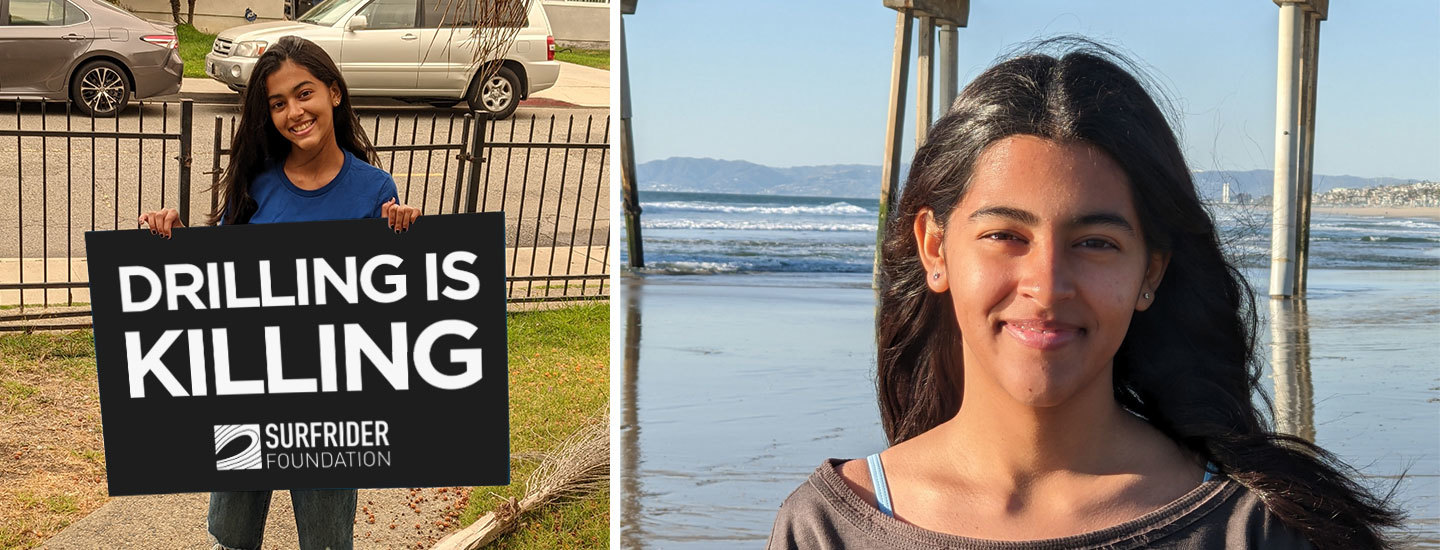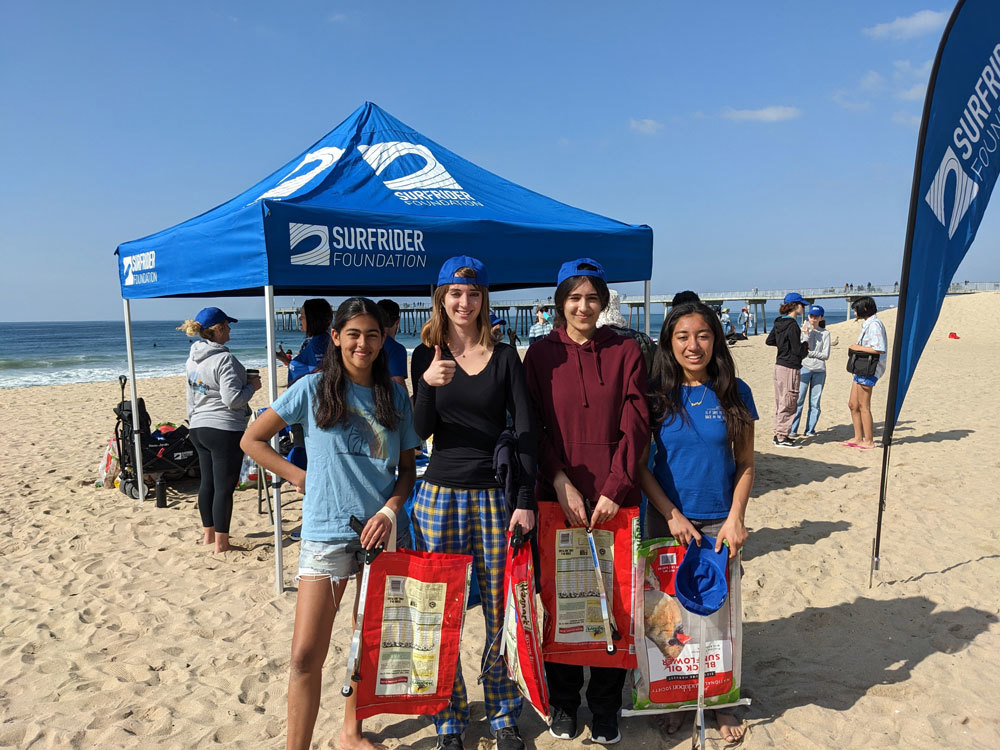
02.15.23
Activist Spotlight: Lalitha Muttulingam With The Redondo Union High School Club
By Surfrider FoundationQ: What is your current role with the Surfrider Foundation?
I am currently the President and Founder of the Surfrider Foundation Redondo Union High School Club, the Assistant Student Lab Director at Surfrider's Southbay Blue Water Task Force Teach and Test Program, a member of the Surfrider South Bay Beach Cleanup Committee, and a new member of the Surfrider Student Club Leadership Council.
Q: Why and when did you get involved with the Surfrider Foundation?
In 2019, when I was 12 years old, I went to a Surfrider beach cleanup with my family, where we met Mary Simun who introduced us to the Teach and Test program. Ever since then, I’ve been going to Teach and Test regularly, and have been trying to get as involved with Surfrider as possible since I’ve always loved the ocean and beach. In my sophomore year of high school, I founded my school’s Surfrider Foundation Club, and have worked to get other students interested and volunteering with Surfrider.
Q: What are some environmental issues that are affecting your local community?
While many of my local beaches (Hermosa Beach, Manhattan Beach, etc.) are popular and welcome many tourists, this results in littering and trash on our beaches and in our water. In addition, the sewage spills and runoff of fecal matter into our oceans can cause the beaches to be unsafe and polluted. We have surfers and ocean wildlife (such as sting rays, sea lions, sharks, etc.) at our beaches so it is especially important that our ocean remains clean and safe.

Q: What Surfrider projects have you worked on?
I have focused on Surfrider South Bay's Blue Water Task Force Teach and Test Program, where middle and high school students from across the South Bay collect ocean water samples from across our local beaches and run a water quality test on them. We run a serial dilution on the samples to determine the amount of enterococcus bacteria, which indicates the amount of fecal matter in the water. I have also worked on beach cleanups and waste characterization by organizing and recruiting.
Q: Are there any specific project(s) that you have worked on which benefited your community? If so, can you tell us about that?
Our results from the Teach and Test program are posted across Instagram and the Surfrider South Bay website and can help members of our community avoid unsafe beaches. Often when we are sampling the water, people ask about the status of the beaches, and thanks to our continuous testing, we can give them data on how sites typically test and information on how to find future results. In addition, my school’s newspaper recently featured an article on members of the surf team falling sick from the bacteria in the water and cited Teach and Test’s previous results at that beach to back their statements and raise awareness towards the unsafe conditions the surfers were facing.
Q: What has been the highlight of your Surfrider experience (i.e. campaign, program, victory)?
Establishing my school’s (Redondo Union High School) Surfrider Foundation Club has been the highlight of my Surfrider experience. I established a Surfrider Club at my school so I could introduce other students to the Teach and Test program, beach cleanups and other Surfrider volunteering opportunities. The club also spreads awareness of ocean protection and gets more students engaged in science and volunteering.

Q: Do you have any personal experiences or campaigns/ issues that you’re passionate about where the social justice and environmental movements have intersected? If so, can you tell us about them?
Through recruitment by my Surfrider Club, we have involved many students from diverse backgrounds with our Teach and Test program. Many of the student volunteers are people you wouldn't otherwise expect to be involved with ocean protection. However, the testing is so interesting and engaging that they consistently come to Teach and Test and become interested in science and conservation.
Q: What can Surfrider do (or continue doing) to foster an inclusive and welcoming experience? Do you have any examples from your experience where this is successfully happening?
Surfrider can continue to encourage all types of people from different backgrounds to get involved and continue to offer local volunteering opportunities. At my school, many students are interested when they hear about Surfrider and want to volunteer. Surfrider also offers many inclusive opportunities help them get involved.
Q: What is the most important thing you tell others about Surfrider?
I often tell others that Surfrider allows people to help their community and protect the ocean in an accessible way. People can volunteer with Surfrider through a variety of opportunities and even if someone can’t fully commit, they can still do what they can when they can, and it will benefit their community and ocean.

Q: Why is being a part of the Surfrider ocean conservation community important to you?
Being a part of the Surfrider community has allowed me to meet many people, students and activists from different walks of life that I otherwise wouldn’t have met. I have talked to and learned from experienced Surfrider activists, and I hope to continue to meet and learn from other Surfrider members in the future. Now that I am on the Student Club Leadership Council, I am excited to be able to meet other Surfrider members and club leaders and work with them.
Q: Anything else?
A huge thank you and shout out to Mary Simun, the co-chair of Surfrider South Bay, who single-handedly runs the Teach and Test program, and got me along with countless other students involved with Surfrider. She makes the environment at Teach and Test safe and engaging. In addition, she always supports and encourages student clubs across the South Bay. None of my work with Surfrider would have been possible without her.

